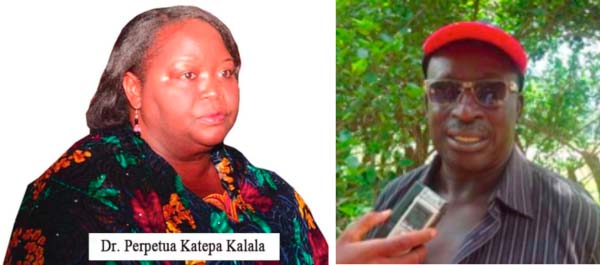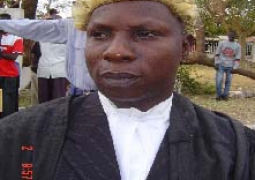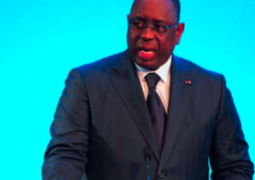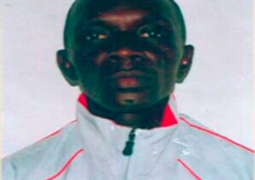
Camara received the award at a ceremony organised by the FAO for their partners in The Gambia, held recently at a local hotel.
“I was not expecting it,” Mr Camara told reporters in an interview with him after being awarded the medal by FAO Rome through the FAO country office in Banjul.
“It has been a long observatory and observation of my activities, both nationally and internationally, and I thank everyone for this award,” Mr Camara added.
He said the award was dedicated to the Agriculture Nature Resources (ANR) sector, which includes the government and farmers.
The award was possible due to the contribution of all actors, he continued, and assured FAO Rome that he would continue to do his best to contribute to the development of the natural resources of the country.
He added that 2016 is going to be very challenging for the agriculture and natural resources sector, which has the agriculture and natural resources policy.
The policy captures the fisheries policy, the water resources, wildlife and all the sub sectoral policies incorporated into a document called the ANR policy, he went on.
Mr Camara said FFF together with other actors would work with the ministry of Agriculture to ensure that the policy review process would start so that they would not have huge gaps.
Among the challenges in 2016 is that the ministry responsible for lands and traditional government is in the process of developing a forest land policy in The Gambia.
They want the ANR institutions involved in the policy process and farmers to be represented in the policy process, so that their concerns could be taken on board on land policy.
Institutions should advocate for participatory natural resources management and supporting of groups in term of good governance, Camara added.
According to him, forest and farm producers’ organizations have shortcomings, and one of them is that for most of them their congress is overdue.
They needed to hold their national congress so that the farmers could review what the executive committee members have done during their mandate, as well as select a new executive.
These organizations need to be supported to conduct a national congress of farmer networks, so that the position of the executive and the activities they have implemented could be reviewed, new executive committee members could be selected, and to adopt a new strategy where applicable.
Mr Camara pointed out that one body that needs to be supported to hold a national congress is the Rice Farmers Association of The Gambia.
He said all Gambia forestry platforms need to be supported, as in 2010 when the all-Gambia forestry platform was supported to proceed on the national forest programme facility.
According to the constitution the all-Gambia forestry platform, they need to conduct a national congress of the platform and intend to work with stakeholders to support all those apex groups to conduct their congresses.
“We also have policy issues that emerged from the implementation process, from the stakeholders and the community.”
The forestry laws stipulate that the community would be observed within 18 months or 36 months before they could have ownership transferred.
Stakeholders believe that 18 months and 36 months is a long period considering the rate of the deforestation, and the rate of the land use in The Gambia.
They recommended the need for policy consideration, and want it to be reduced to either 12 months or 18 months, he said.
“We still have 160,000 hectares of natural forest, which according to the policy needs to be managed by the local population by 2019.”
The way forward is to collaborate with partners, that is, the government, local community and non-state actors to ensure that all challenges ahead of 2016 could be attained, according to Camara.
Read Other Articles In Article (Archive)

STOP PRESS: Judgement in Six Gambian Journalists Case Deferred
Aug 5, 2009, 8:39 AM



